Clifford Garstang's Blog, page 137
March 16, 2011
Helen Schulman Shares Novel-Writing Tips From Cynthia Ozick to Jennifer Egan | Word Craft - WSJ.com
Helen Schulman Shares Novel-Writing Tips From Cynthia Ozick to Jennifer Egan | Word Craft - WSJ.com
Here's a snippet:
Here's a snippet:
Starting from page one is an idea I stole from the novelist Elizabeth Dewberry. When she told me that beginning from the beginning was how she commenced every day, I thought I'd give it a try. That was two decades ago.Since then, many things have changed about the way I write. I used to write at night (now I sleep), spend all day writing (now I'm lucky to get a few solid hours in the morning), and smoke (no more). But I still move glacially forward every day that I sit down at my computer, rethinking and refining each paragraph, line, and word as I go along.
Published on March 16, 2011 06:19
March 13, 2011
The New Yorker: "Going for a Beer" by Robert Coover
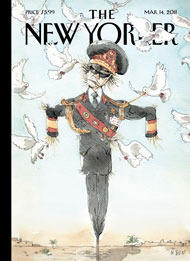
I may be referring to this story for years to come for the brilliant way time passes in every sentence. The point of view character can barely conceive of an action before he's already completed it:
"He finds himself sitting in the neighborhood bar drinking a beer at about the same time that he began to think about going there for one. In fact, he has finished it. Perhaps he'll have a second one, he thinks, as he downs it and asks for a third."And on it goes, through picking up a woman, having sex, dating, marrying, having children, having an affair, divorce, commiserating with his ex-wife's new husband, being visited on his deathbed by his son, death.
Breathless: Life is short.
March 14, 2011: "Going for a Beer" by Robert Coover
Published on March 13, 2011 11:13
Prime Number Magazine updated today, 3/13/11
 It's national prime number day and we've posted our lasted update (#5.5) to Prime Number Magazine, with work by Steve Mitchell, Meg Tuite, M.V. Montgomery, Dan Alter, Kristine Ong Muslim, Rimas Uzgiris, and Nicholas Wong.
It's national prime number day and we've posted our lasted update (#5.5) to Prime Number Magazine, with work by Steve Mitchell, Meg Tuite, M.V. Montgomery, Dan Alter, Kristine Ong Muslim, Rimas Uzgiris, and Nicholas Wong.We're open for submissions! (We especially need flash fiction non-fiction at the moment, but we're reading in all genres.)
Published on March 13, 2011 06:18
March 12, 2011
SWAG WriterDay - March
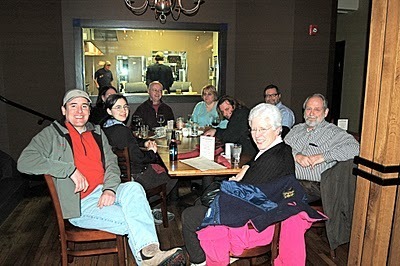 SWAG -- the Staunton, Waynesboro, Augusta Group of Writers -- has been holding monthly WriterDay happy hour celebrations for the past few months, on the Second Wednesday of each month, from 6-8pm.
SWAG -- the Staunton, Waynesboro, Augusta Group of Writers -- has been holding monthly WriterDay happy hour celebrations for the past few months, on the Second Wednesday of each month, from 6-8pm.This picture is from our March get together.
Up to know, the gathering has been simply talking about writing and publishing, sharing ideas and tips, and general networking. Starting in April, though, SWAG will combine the happy hour with an open mic night (or open no-mic, since at least initially will be un-amplified). For that event we'll move to the newly reopened Darjeeling Café at 103 W. Beverley. We'll convene at 6 and the readings will commence at 7.
 Hope you can join us!
Hope you can join us!
Published on March 12, 2011 06:09
March 7, 2011
Why Do Writers Abandon Novels? - NYTimes.com
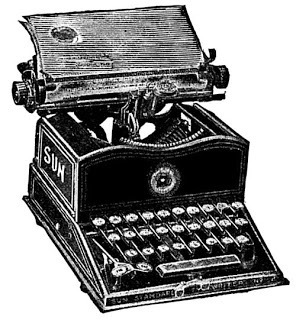 Why Do Writers Abandon Novels? - NYTimes.com
Why Do Writers Abandon Novels? - NYTimes.comOn my Facebook page we're having a discussion about this topic, and for most of us it isn't an academic question. Most writers I know have some abandoned work in a drawer, or a filing cabinet, or tucked away in a computer folder somewhere. I certainly do. My MFA thesis was a novel, which then became two novels when I split it apart, and now both of them languish. I've just finished another novel that may or may not ever see the light of day. But I find it extremely difficult to let go of this work, partly because I spent so much time on these projects and partly because I still believe in them.
When writers say that they've given up on a book because it isn't "working" I simply do not know what they mean. Apparently others do understand this concept, but no one has articulated it for me in a way that I find fully convincing. Can't everything be fixed? Your main character isn't sufficiently [fill in the blank: likable, sympathetic, engaging, interesting]. So change him! The plot isn't sufficiently [fill in the blank: believable, engaging, dynamic]. So tighten the plot or add the elements it's lacking.
Unless of course you've simply lost interest in these characters or the plot and decide that you want to move on to something else. But that's a different question. That's giving up on the project; it isn't a judgment that it isn't "working," whatever that means.
I like this mention from the article of Updike's work:
Many writers get lost in their first attempt at a longer work. Adam Begley, author of a forthcoming biography, said Updike wrote two-thirds of "Willow," a small-town novel, while still a student at Harvard. Loath to waste either ideas or paper, Updike mined the novel for material for a series of Willow-set stories — some of which were written on the flip side of old novel pages.This is now what I'm trying to do with the early novels--I'm mining them for stories (which isn't as easy as I'd hoped it would be). I still think that original novel is a good idea, but it would have to be completely rewritten. I'm a better writer now than I was when I started that project, so I think I could do it. I just don't want to. I've [mostly] moved on.
Is the novel in your drawer one that isn't working? Or is it one that you've simply lost the will to work on?
Published on March 07, 2011 06:22
The Northville Review | In Hoan Kiem Lake
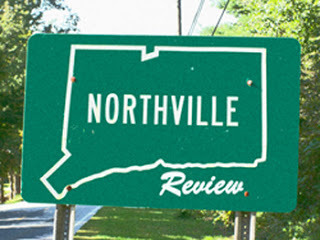 I'm very happy that my story "In Hoan Kiem Lake" is now live at The Northville Review. This story is part of a series of mostly very short pieces about a guy named Oliver.
I'm very happy that my story "In Hoan Kiem Lake" is now live at The Northville Review. This story is part of a series of mostly very short pieces about a guy named Oliver.The Northville Review | In Hoan Kiem Lake
Published on March 07, 2011 05:05
March 3, 2011
The New Yorker: "Backbone" by David Foster Wallace
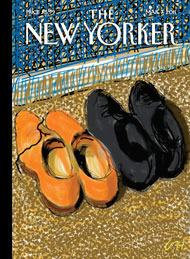 This New Yorker story is available for free, folks, so have at it. It's more brilliance from David Foster Wallace. That's the good news. The bad news is that it must be an excerpt from his posthumous novel, coming out next month. I don't know that for sure, but this "story" doesn't end, it only stops, and so I assume it is excerpted from something.
This New Yorker story is available for free, folks, so have at it. It's more brilliance from David Foster Wallace. That's the good news. The bad news is that it must be an excerpt from his posthumous novel, coming out next month. I don't know that for sure, but this "story" doesn't end, it only stops, and so I assume it is excerpted from something.But, as I say, it's brilliant. The story is about a kid who gets it into his head that he wants to kiss every inch of his body. To do so, he has to become something of a contortionist, and he develops this skill gradually. Reading how he does this is where Wallace is at his best.
The kid's not the only contortionist in the family, however. His father is having multiple affairs, rationalizing each of them, twisting his logic in much the same way that his son is twisting his body.
Along the way, Wallace discourses on pain and the tolerance thereof:
In fact, patients who are critically ill or gravely injured do not necessarily experience intense pain. Nor is the observed intensity of pain directly proportional to the extent or severity of the damage; the correlation depends also on whether the "pain pathways" of the anterolateral spinothalamic system are intact and functioning within established norms. In addition, the personality of a neurotic patient may accentuate felt pain, and a stoic or resilient personality may diminish its perceived intensity.
Eventually, the boy has only his own head to conquer, but he's confident he can do it.
March 7, 2011: "Backbone" by David Foster Wallace
Published on March 03, 2011 05:04
February 28, 2011
Too many books, not enough books
I started a bookshelf-reorganization project in December--it seemed like something to do over the holidays--but didn't quite finish. Just yesterday I managed to finally get through all of the fiction books, but in the process I displaced some miscellaneous non-fiction and, more significantly, my substantial collection of Asian fiction (which I don't shelve with the regular fiction because . . . because I don't). As I've been going through the thousands of books, touching every one, I've managed to find some that I can get rid of: the occasional embarrassing duplicate copy; a classic that I can now get for free on my Kindle; a mystery or thriller I know I'll never, ever need again. Not as many as I'd hoped, though, and so I am still short of bookshelf space. The project needs to move into other genres if I'm going to weed out some more: lots of non-fiction I can live without, I think, and I've got way more literary journals than I need. And somehow I have to start getting rid of the discards . . .
For a long time I've been embarrassed by the large number of books I own that I haven't read. I read a lot, but buy more than I read because I love books. I'm currently reading The Black Swan by Nassim Nicholas Taleb, and I was very happy to find this passage in the introduction to Part 1:
Read books are far less valuable than unread ones. The library should contain as much of what you do not know as your financial means, mortgage rates, and the currently tight real-estate market allow you to put there. You will accumulate more knowledge and more books as you grow older, and the growing number of unread books on the shelves will look at you menacingly. Indeed, the more you know, the larger the rows of unread books. Let us call this collection of unread books an antilibrary.So, it turns out that I have a sizable antilibrary. Yay.
Published on February 28, 2011 06:29
February 27, 2011
Gecko tails
My friend Julie Wakeman-Linn, editor of Potomac Review, is taking some time off to get some writing done. In Tanzania. She's blogging about the experience here: Gecko tails
It looks like quite an adventure. Go, Julie!
It looks like quite an adventure. Go, Julie!
Published on February 27, 2011 04:36
February 26, 2011
Virginia Festival of the Book
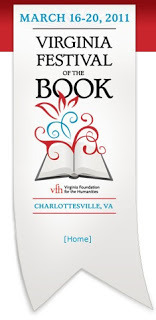 It's less than 3 weeks until the 2011 edition of the Virginia Festival of the Book kicks off. It's another packed festival. Using the handy "bookbag" on the website I've identified a lot of events I want to attend.
It's less than 3 weeks until the 2011 edition of the Virginia Festival of the Book kicks off. It's another packed festival. Using the handy "bookbag" on the website I've identified a lot of events I want to attend.But Saturday will be my busy day because I'm actually moderating two panels then. First is Death: Another Time, Another Place featuring John Connolly, Deanna Raybourn, Paul Robertson, and Alan Orloff. Later in the day I'll be moderating the Historical Fiction panel, with Paul Robertson, Lenore Hart, George Robert Minkoff, and Brenda Rickman Vantrease.
I'm trying to read a book by each of the panelists before we meet, so I've got my work cut out for me. (I'm grateful to Paul Robertson for being on both panels, giving me one less book to read!)
I'm also looking forward to the Short Story panel on Saturday--that's the same panel I was on last year. This year it features Mary Akers, Ed Falco, Ariel Sabar, and Andrew Wingfield.
Published on February 26, 2011 16:27



